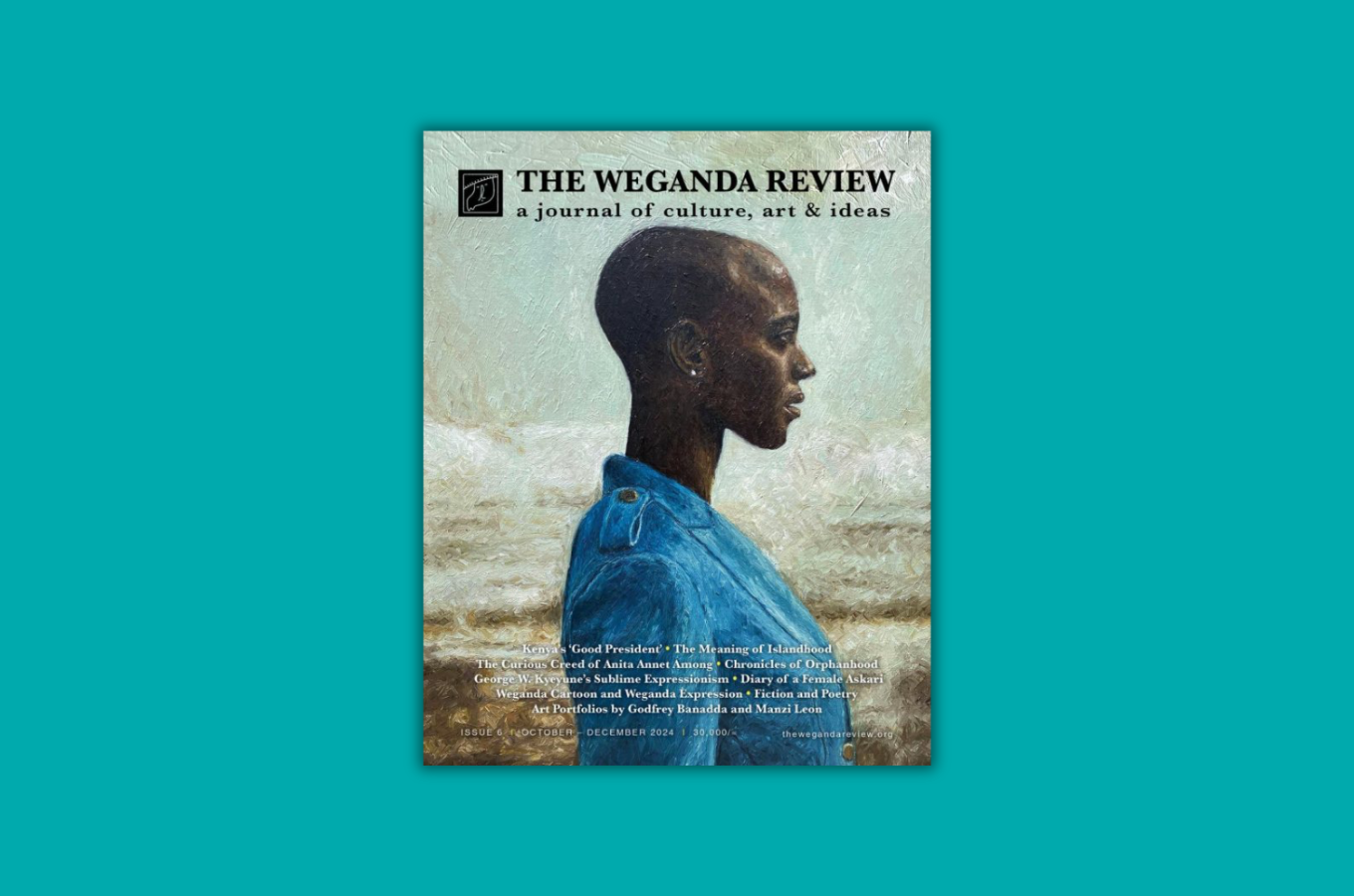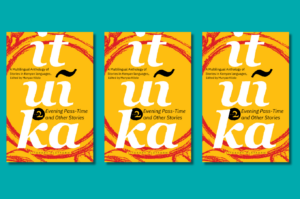
The Weganda Review announced that their sixth issue is now available in print and online. This issue revolves around “the scandal swirling around Uganda’s parliamentary speaker, the ideal of islandhood, the state of orphanhood, the disorienting failure of youth-led protests in Kenya, and the legacy of the Ugandan expressionist painter George William Kyeyune.”
Here are some of the featured pieces in the issue, which all happen to be centered around the love of art:
- Prose
- Among the Looters by Olivia Nalubwama
- The Good President by Akal Mohan
- Picture of Life by Rodney Muhumuza
- Islandhood by Khaddafina Mbabazi
- Akafuuzi by Zabu Wamara
- God’s Windows by Nana Nyarko Boateng
- Poetry
- Diary
- Watching by Agnes Lemaru, Female Askari
- Q of the Q
- Willa Cather in Death Comes for the Archbishop
- Art and Photography
- Weganda Cartoon by Joseph Mugume
- Complexity by Godfrey Banadda, with an introduction by TWR
- Weganda Expression by Rodney Muhumuza for TWR
- Black Womenfolk by Manzi Leon, with an introduction by TWR
- Cover art, an acrylic painting titled Blue, is by Manzi Leon









COMMENTS -
Reader Interactions